Author Archive
Transit will be reeling from COVID-19 for years
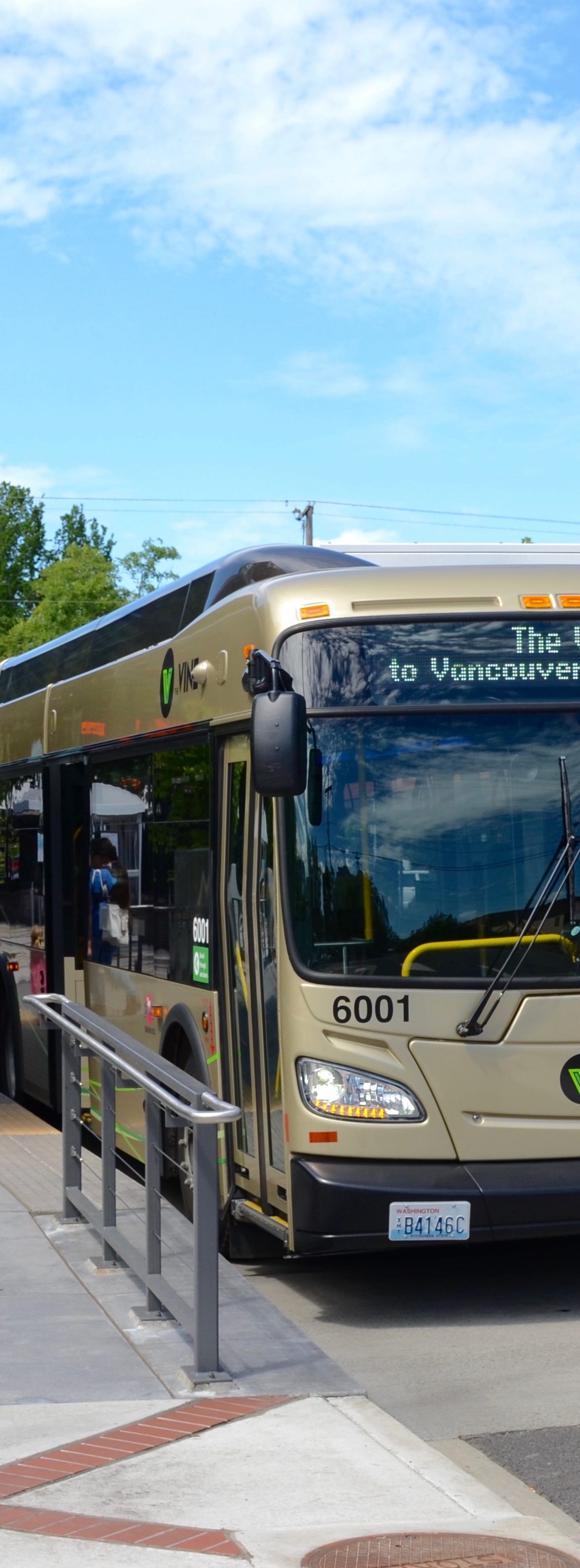
When cities and states began shutting down in response to COVID-19, the financial impact to transit was swift and immense, but the immediate impacts only tell part of the story. Given the myriad ways that transit is funded around the country, the fiscal impacts of the pandemic will likely be varied and long-lasting. Congress and state legislatures should strive to find ways to adequately plan for and address those shortfalls in the long-term.
Transit projects slowly leaving the station
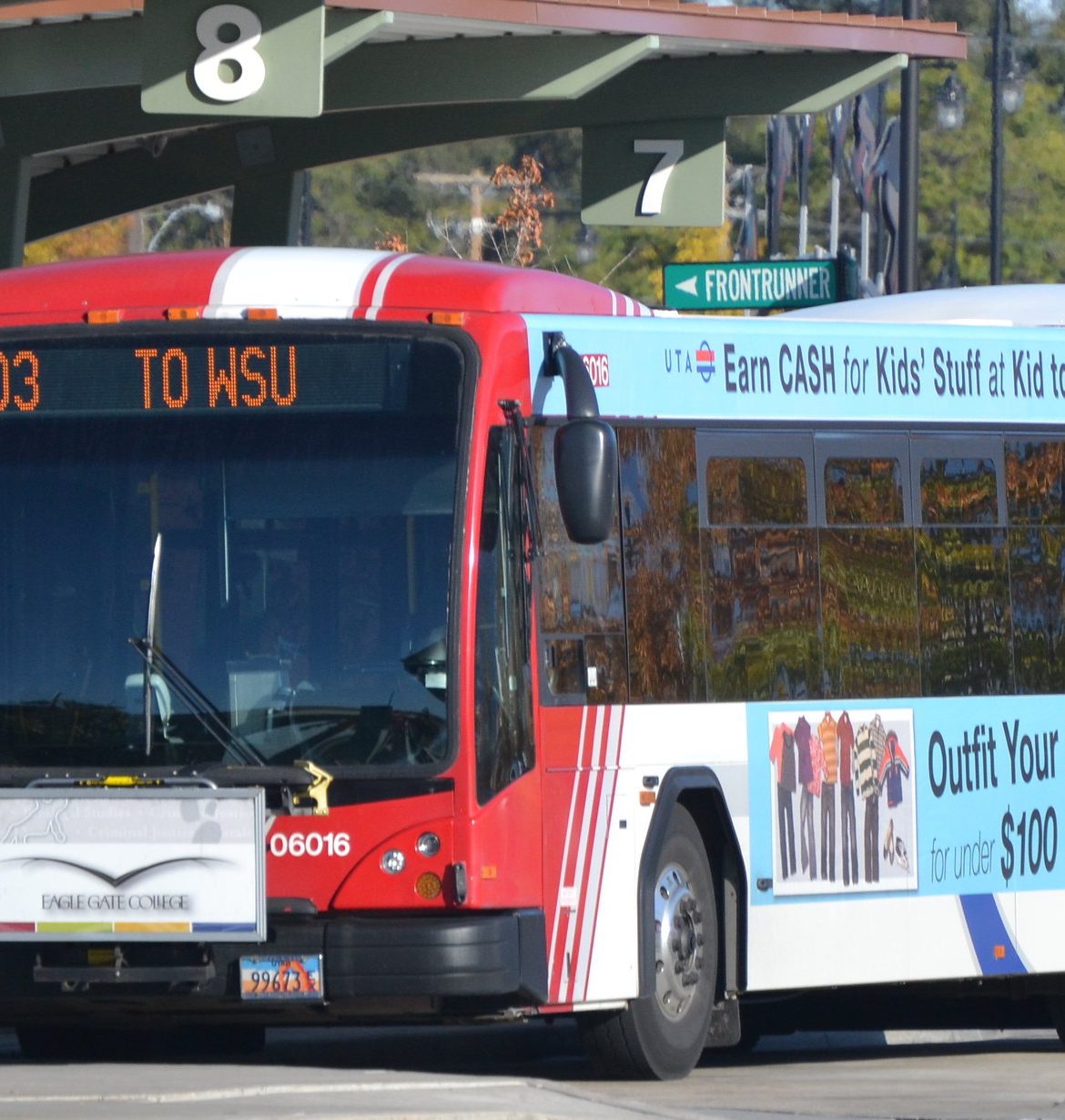
After the Trump administration took office, long-planned transit projects applying for federal grants began to run into administrative roadblocks, unexplained delays, and other difficulties that put the future of these projects at risk. In response, Transportation for America launched Stuck in the Station to call attention to these inexcusable delays and slowly USDOT began to respond to the pressure. Now, in light of that progress, our focus will be on policy solutions—changing the law—to make transit easier to build in America.
“Shovel-ready” projects just dig a deeper hole
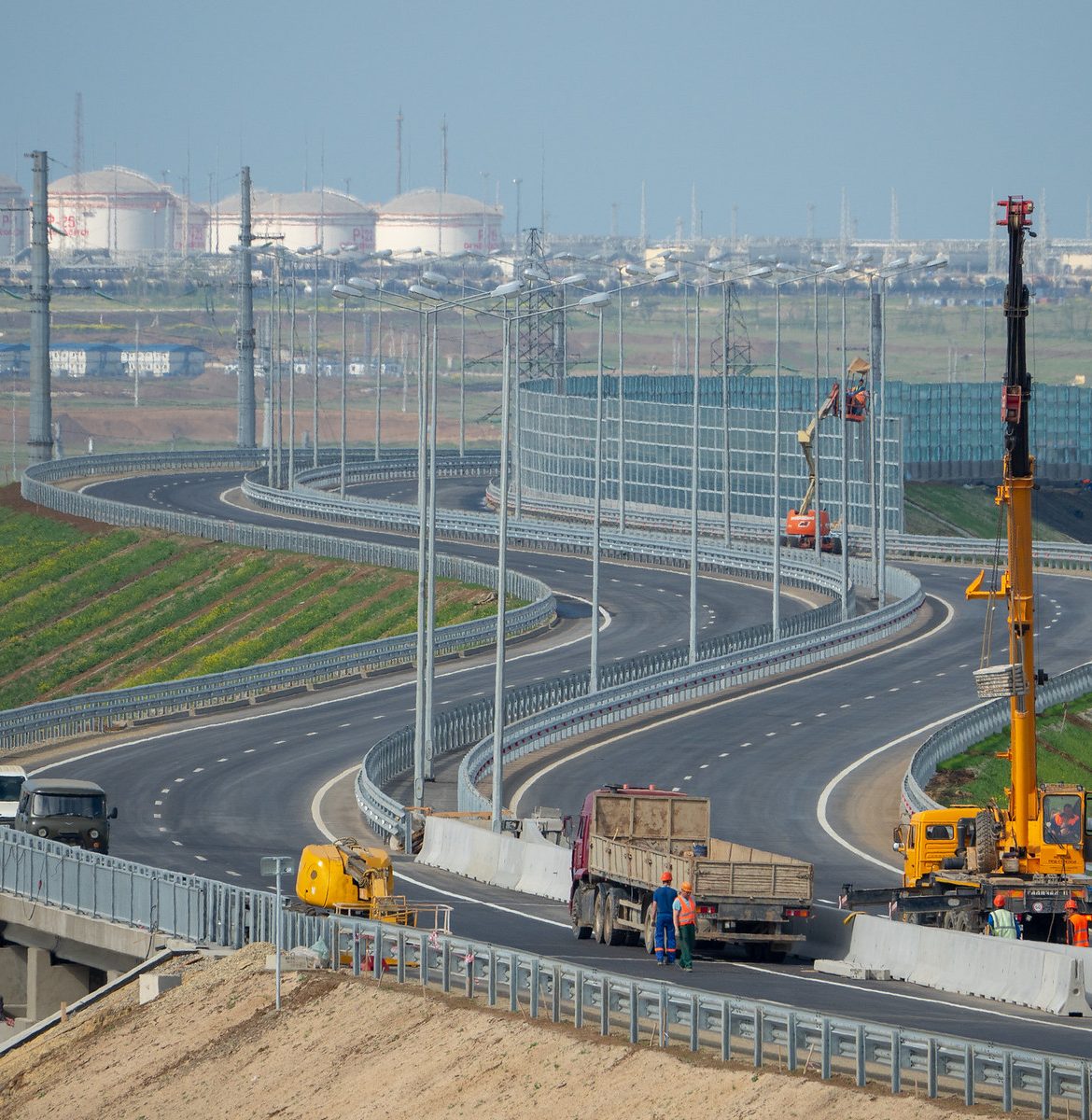
Investing in “shovel-ready” projects—projects that are allegedly ready to go but just lacking funding—is an attractive idea for stimulating job growth. But as we learned in the 2009 stimulus, “shovel-ready” projects often aren’t all that shovel-ready, are frequently old road projects designed for the needs of the last century, fail to create jobs, and won’t help us build a safer, cleaner, and more equitable transportation system.
Dear governor, our congestion “solutions” have failed
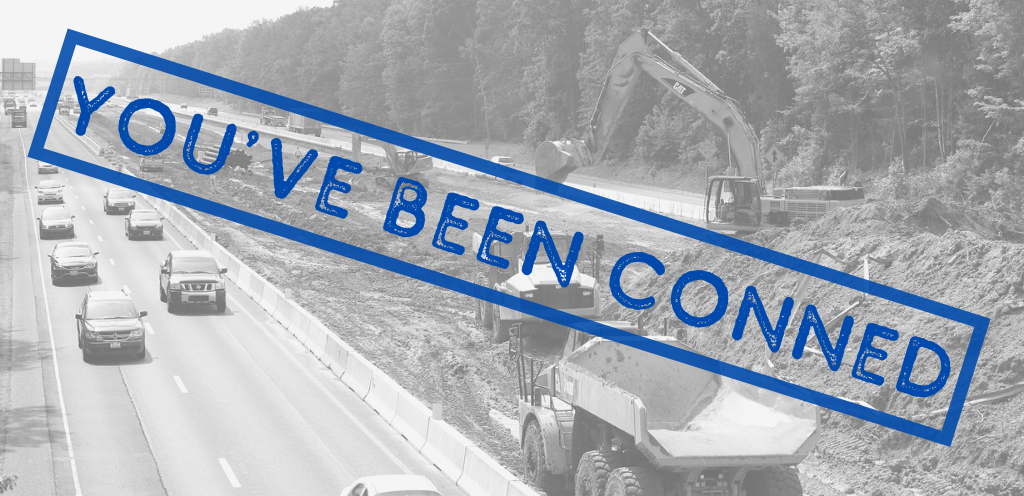
Governors and legislators in state houses across the country have a major role to play in ending the congestion con and spending our money on projects that will actually improve our lives—rather than just temporarily shortening some commutes by 30 seconds until the congestion returns. Help us make that a reality by sending your local officials a message.
BUILDing Complete Streets
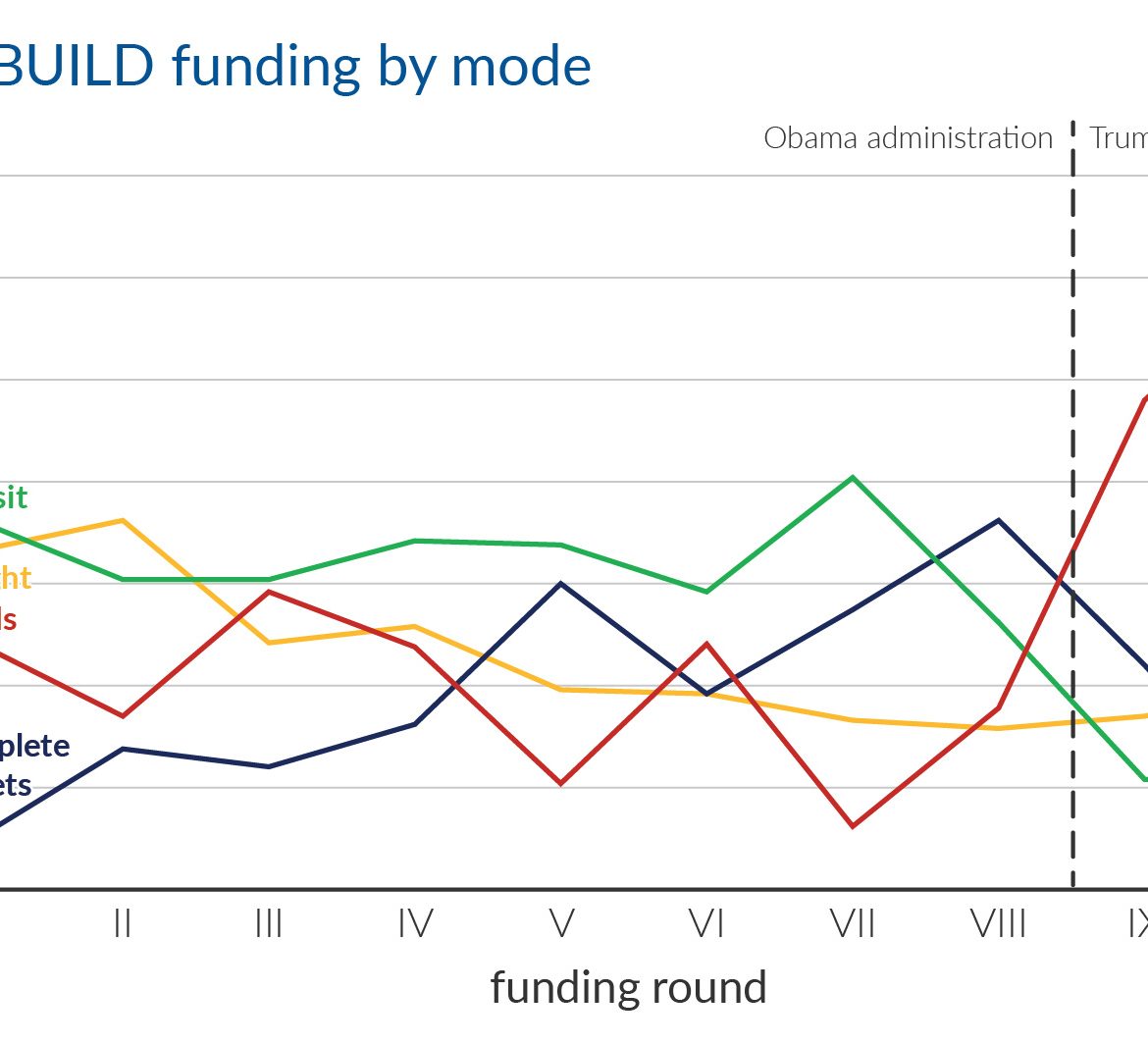
By now it’s well known that the Trump administration is no friend to transit funding. Even the BUILD grant program—which was originally designed to fund complex, multimodal projects—has been warped by the administration’s focus on roads. But there is one silver lining from the most recent awards: Complete Streets.
Rose Lanes get love from Portland City Council
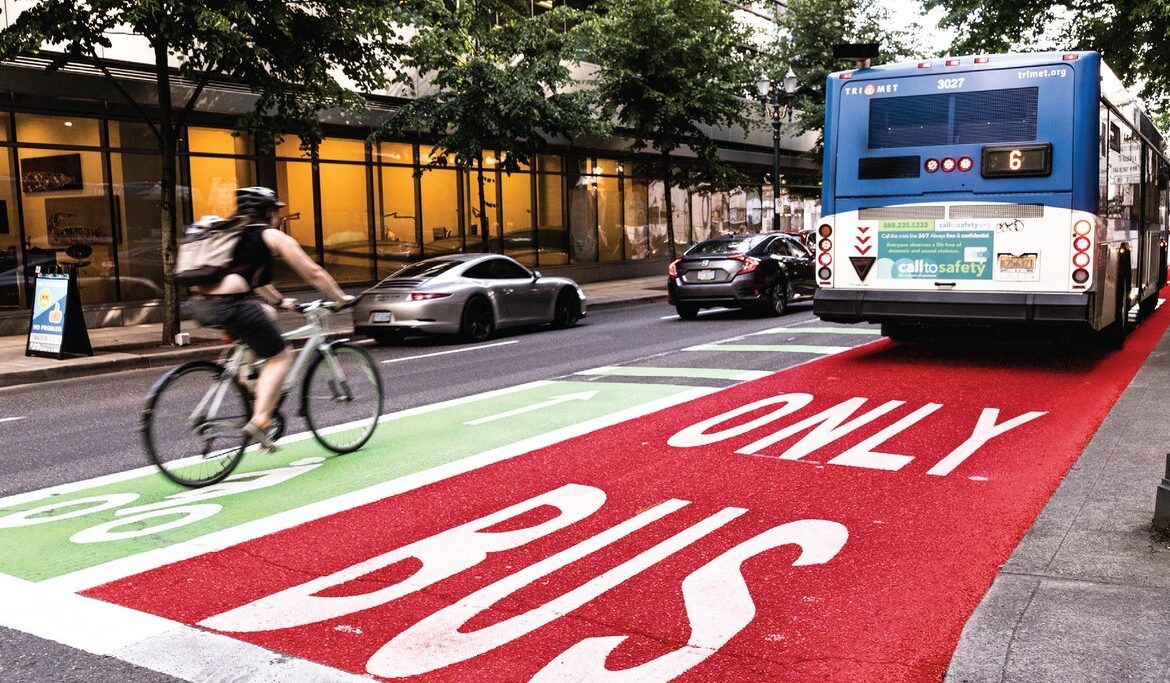
The Portland City Council is moving forward with a plan to improve transit service through a series of targeted improvements to some of the city’s most delayed bus and streetcar corridors. Known as the Rose Lane Project, it’s designed to advance equity, reduce carbon emissions, and increase transit ridership with quick-build projects. It also offers lessons to other cities struggling with sluggish transit systems mired in a sea of cars.
Is this flurry of transit grants a blip or a trend?
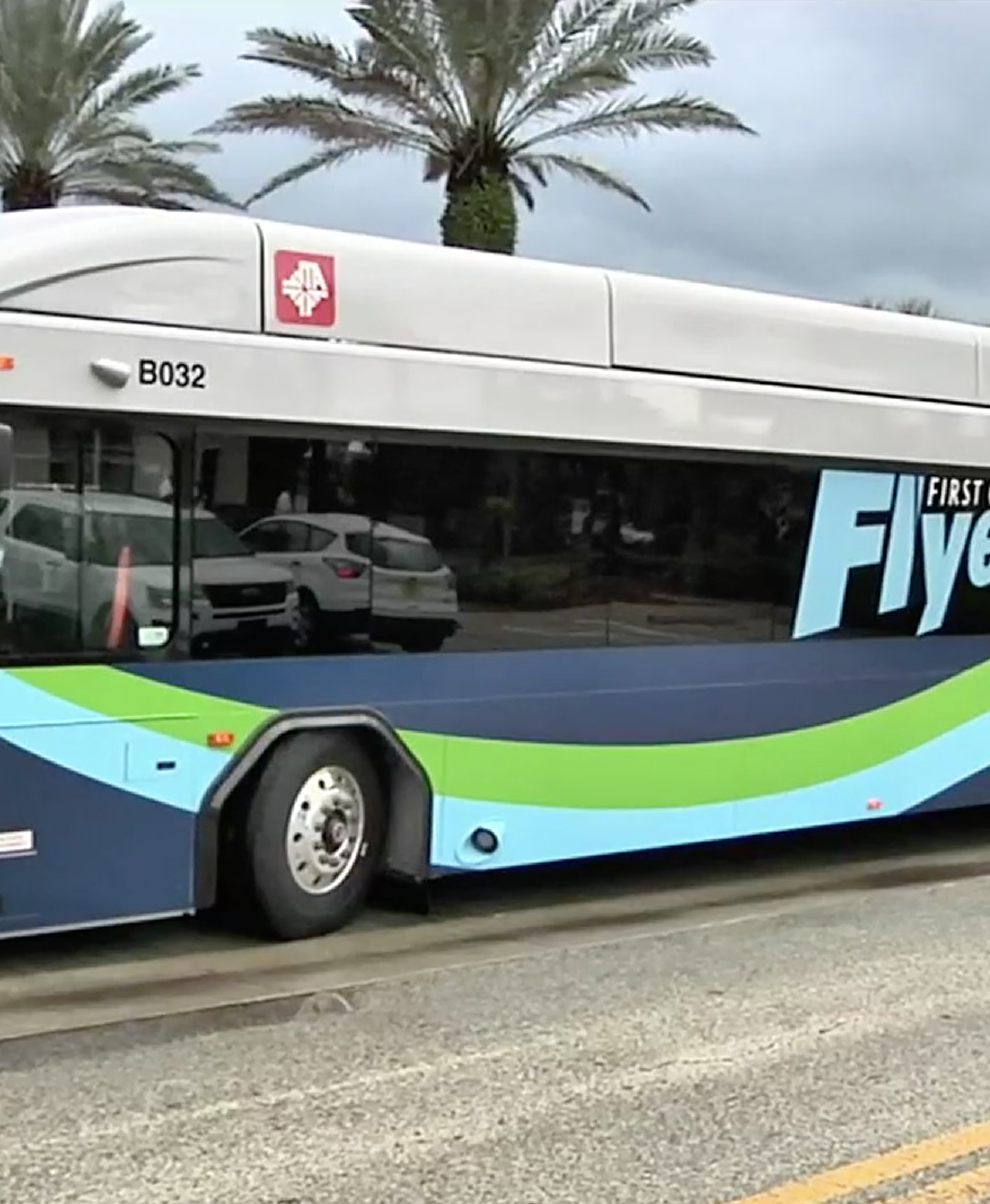
The U.S. Department of Transportation has finalized five grants to expand and build new transit lines. It’s a stark departure from USDOT’s history of stonewalling grants under Trump. Could this surge of grants signal a shift in the agency’s stance? Perhaps. But it does highlight how our federal transportation system is structured to make transit hard to fund and why Congress should work to increase transit funding levels and certainty in new, long-term transportation policy that is currently being drafted. New transportation policy principles released in the House suggest that could be possible.
Business groups urge Congressional support for transit funding
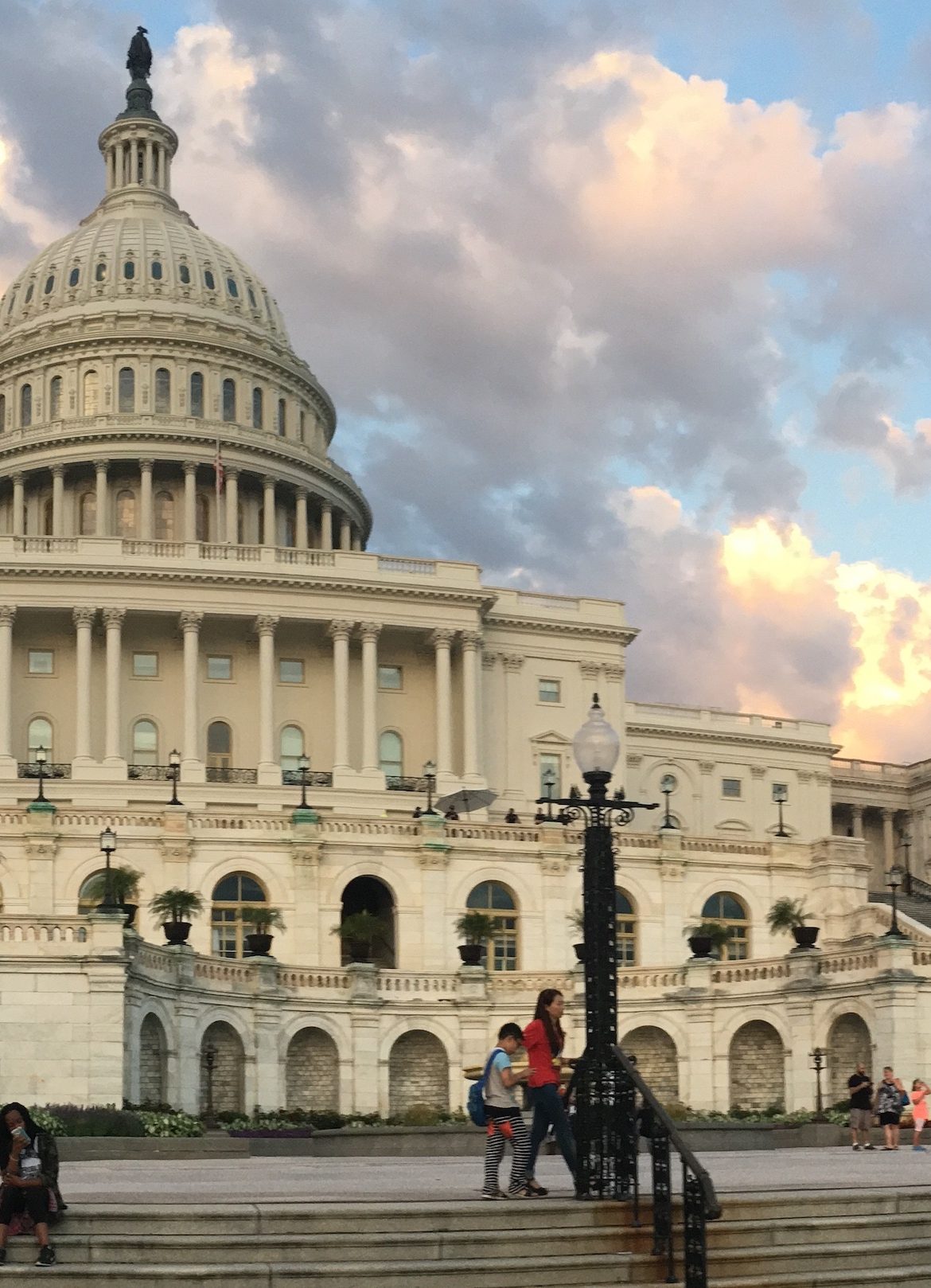
The business community gets it—public transportation is critical for the strength and growth of local economies and federal funding for transit is needed to get projects off the ground. In a letter to Congress, members of the Chambers for Transit coalition called for fully funding the nation’s largest grant program for public transit and reorienting the entire federal transportation program around clear goals and priorities.
Congrats USDOT, for a job poorly done
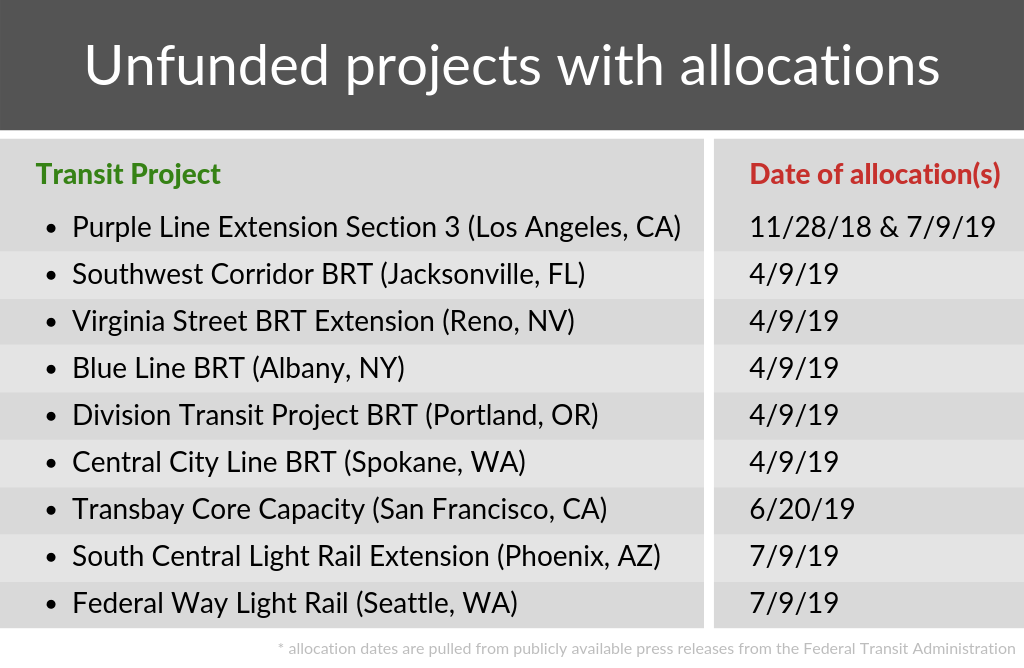
Congress required USDOT to spend its 2018 transit funds by the end of this year, and USDOT was poised to fail. But at the last minute, Congress bailed them out by easing the requirement. As the deadline approaches, USDOT is still sitting on hundreds of millions of dollars in grants that it refuses to award, unnecessarily delaying critical new transit projects.
Trump’s USDOT BUILDs even more roads
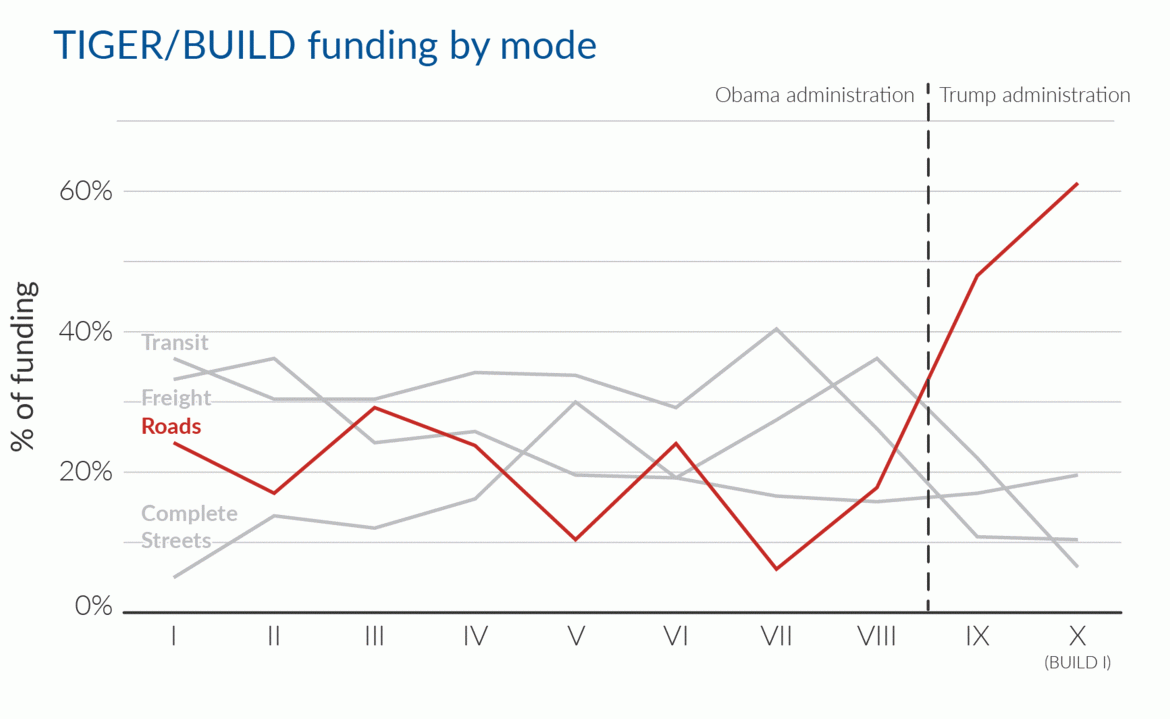
Federal grants for multimodal projects announced this month are decidedly not multimodal. As our research has shown previously, the Trump administration has dramatically undermined this grant program by funding traditional road projects that could otherwise already be funded by states, siphoning resources from other, harder to fund projects—the original intent of the program. But the U.S. House has adopted some policy changes to try and salvage some of what made the BUILD program so popular under the Obama administration.
To connect people to jobs and services, we need to measure what matters: people
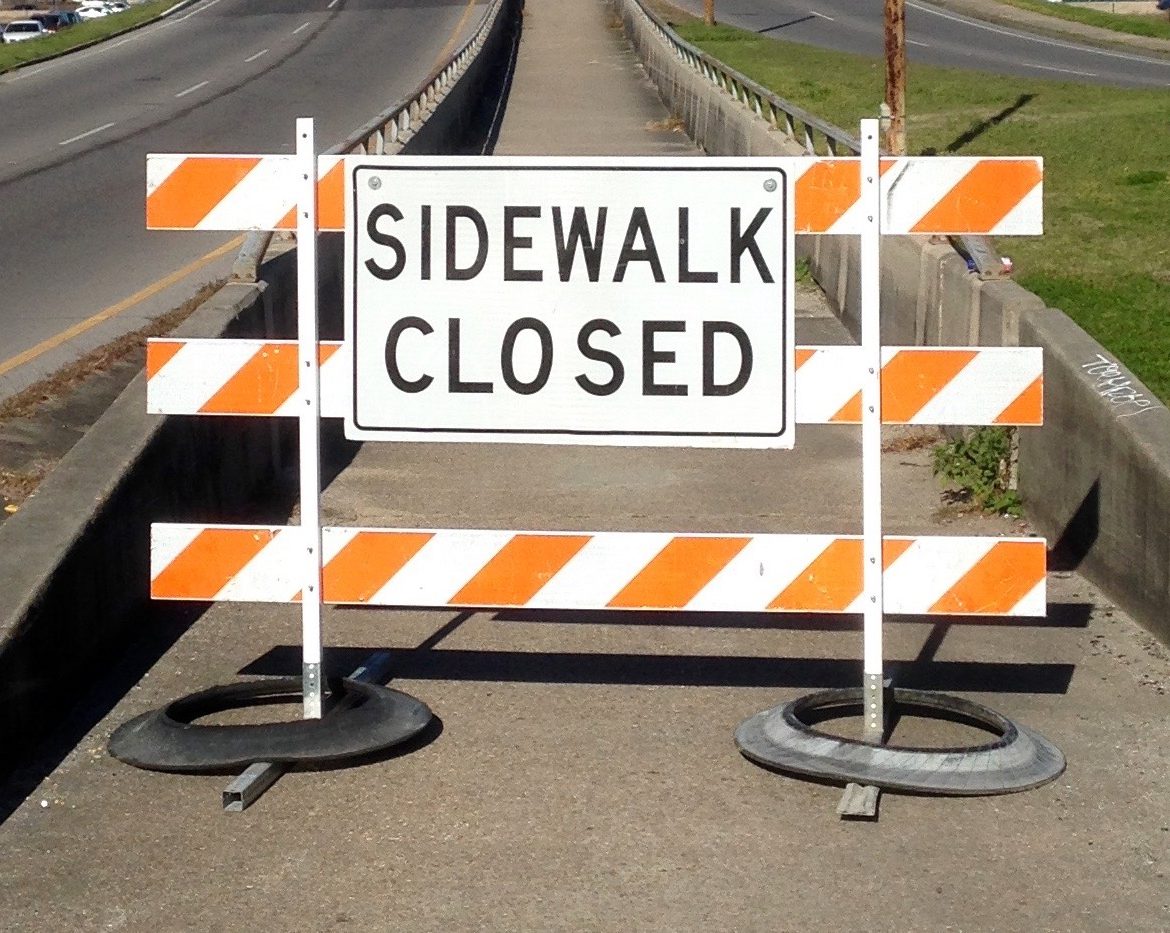
Today we largely decide which transportation projects to build and where to build them based on how much delay vehicles experience, while entirely ignoring everyone not in a car in the first place. By ignoring walking, biking, or taking transit, we’re ignoring the impacts on everyone not using a car, particularly low-income persons, people of color, and older adults.
Safety over speed week: The U.S. builds death traps, not streets
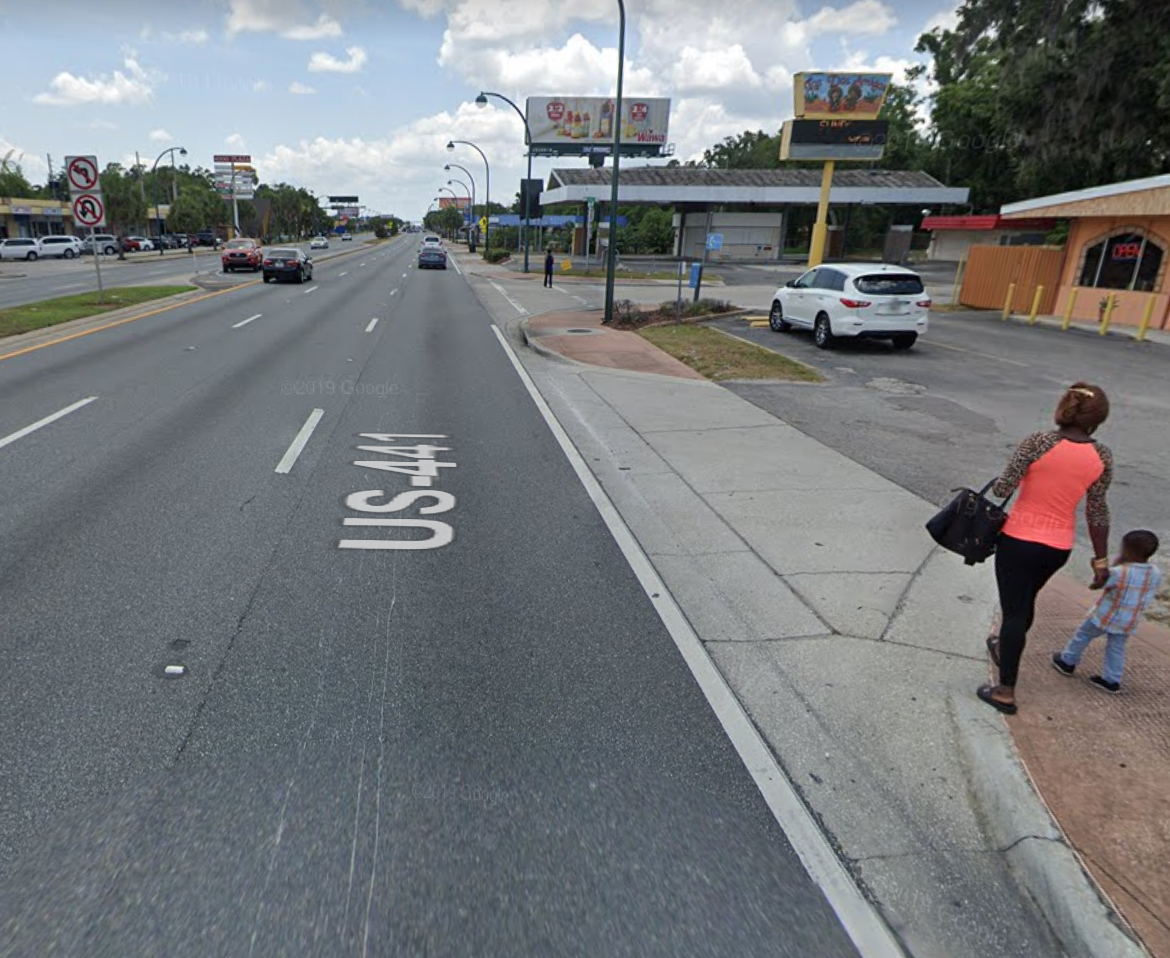
We took a look at one busy road outside of Orlando where a dozen people have been struck and killed by drivers in recent years. The mix of high-speed traffic with people walking, biking, and taking transit is a dangerous combination; in the event of a crash, people die. The Complete Streets Act of 2019 would go a long way to give local government more resources to redesign these dangerous streets so everyone can travel along them safely.
Safety over speed week: Our transportation system values some lives more than others
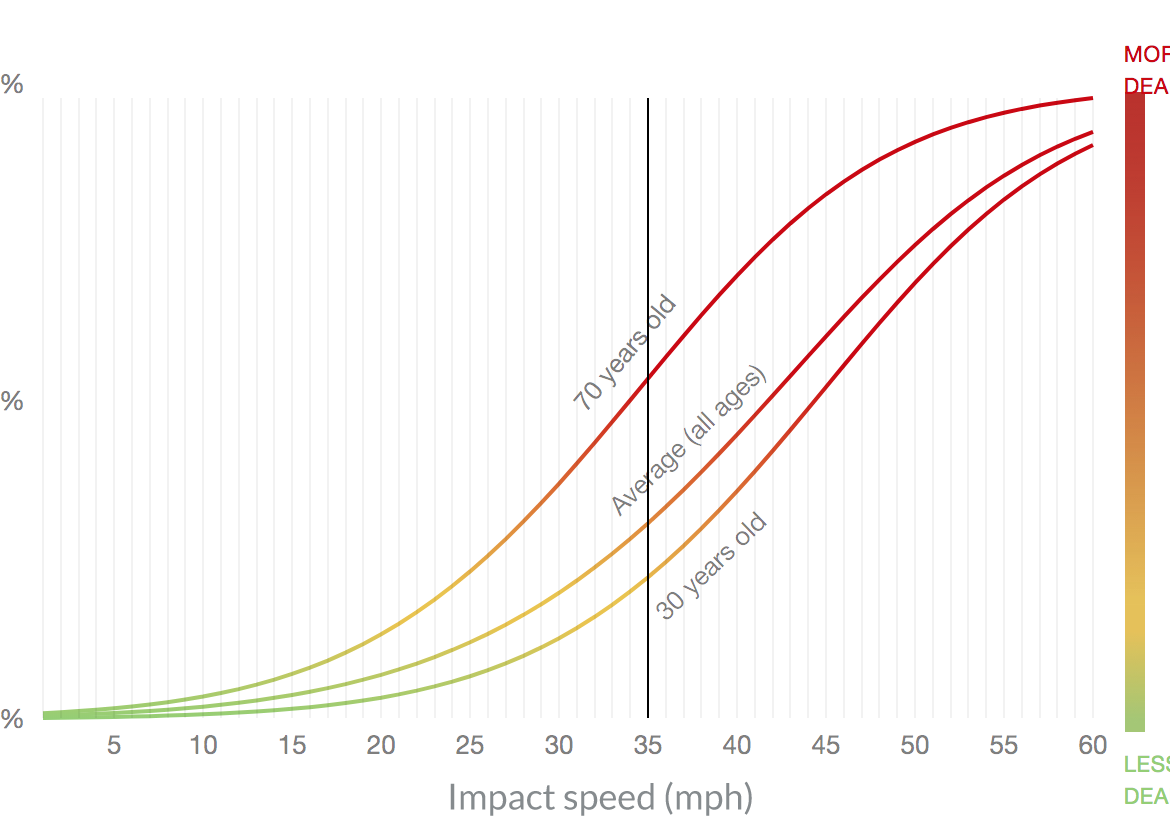
U.S. transportation policy focuses first and foremost on ensuring that drivers can travel with as little delay as possible. But this laser focus on speed sidelines other more important considerations like the preservation of human life and the health impacts of vehicle pollution. Prioritizing safety in our transportation policy—at the federal, state, and local levels—would be a major step towards a more equitable transportation system.
Shutdown averted; another crisis created
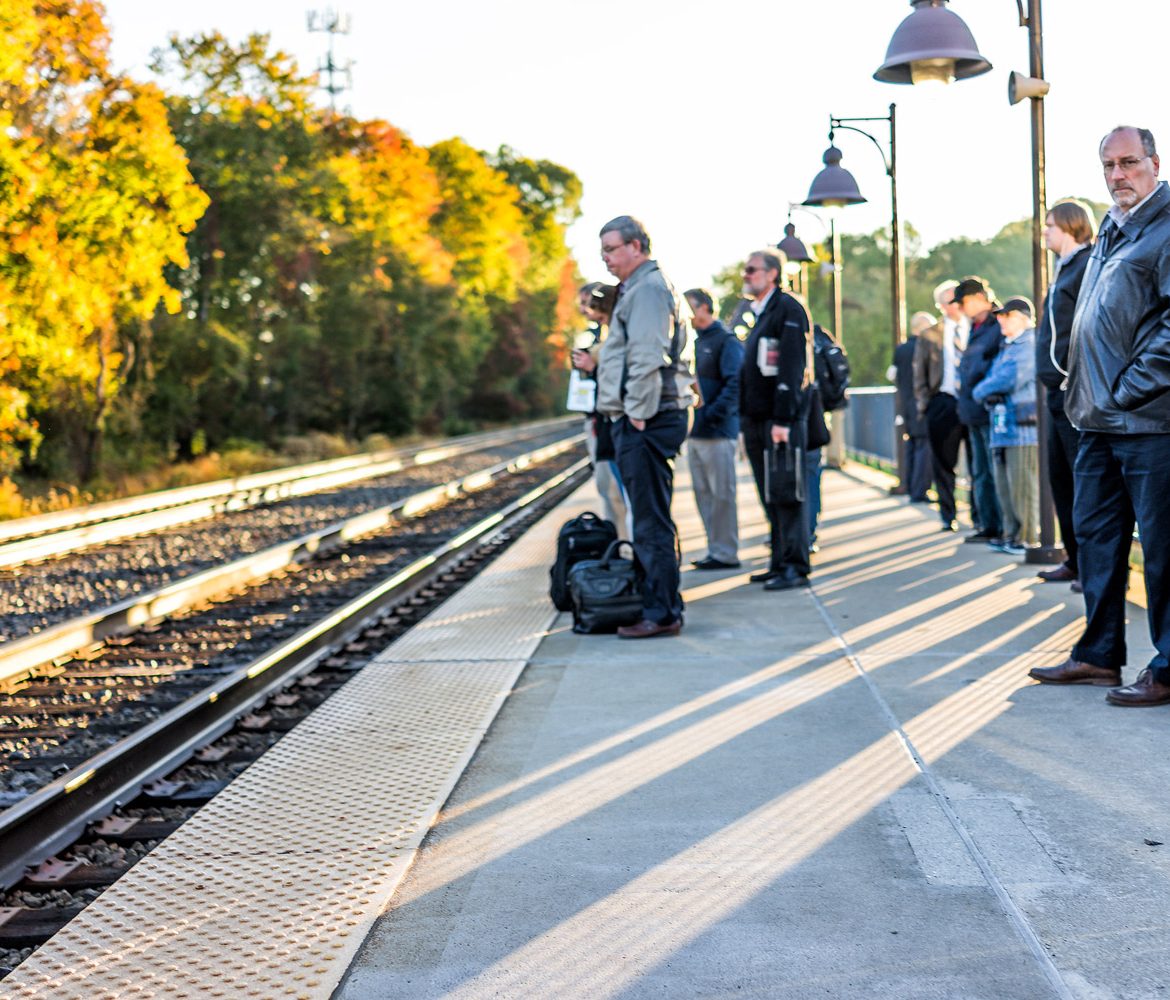
The U.S. Department of Transportation (USDOT) is refusing to obey the rules and Congress has so far been powerless to stop them. At stake are billions in federal funding for new and expanded transit systems that USDOT doesn’t want to award. But a policy change that attempts to reign in USDOT and make it obey the law could just be making matters worse.
Reps. García and Pressley host briefing on transportation and climate, announce caucus
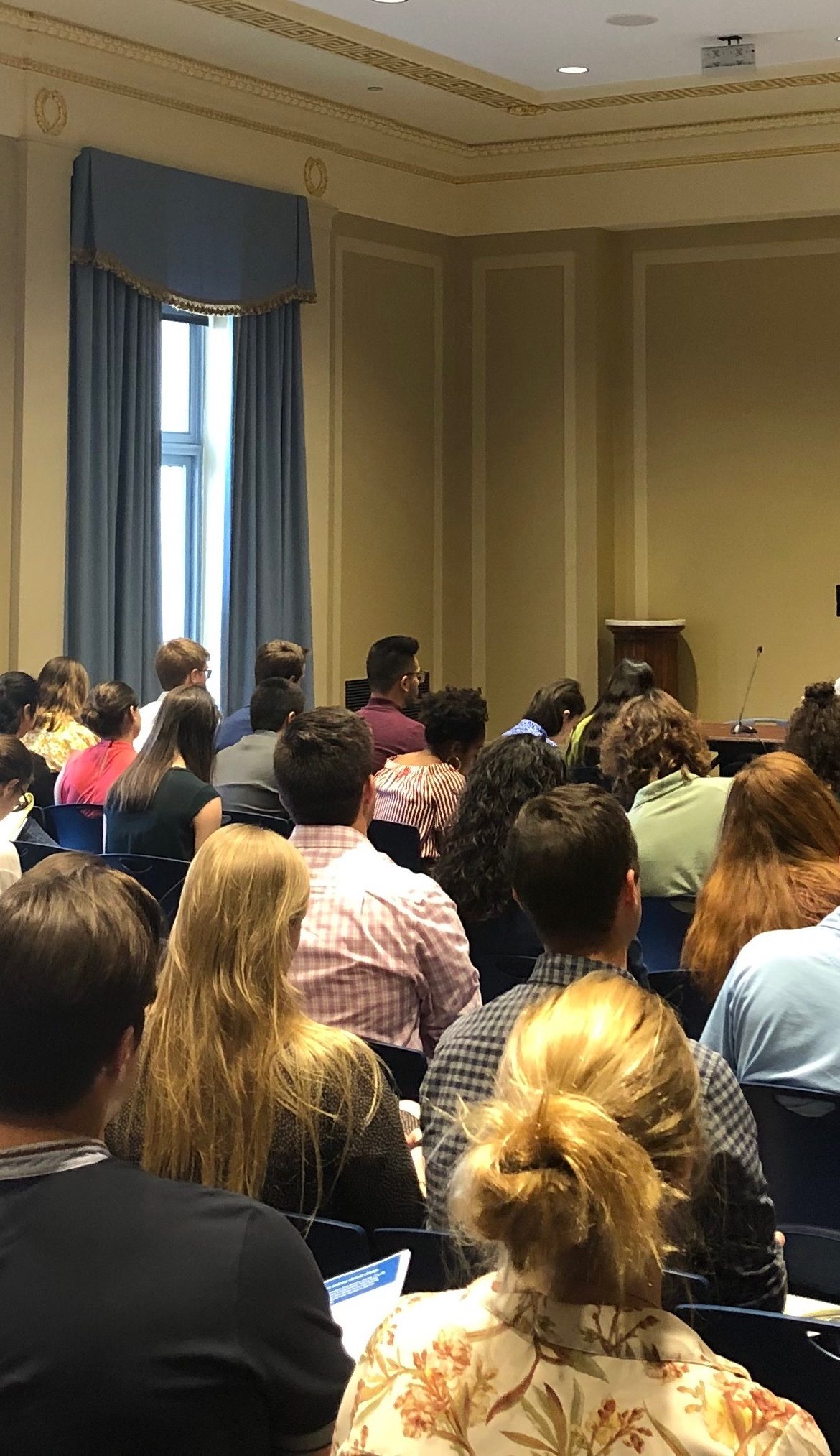
Last week, Representatives Chuy García (IL-4) and Ayanna Pressley (MA-7) co-hosted a briefing on Capitol Hill on the nexus of transportation and the climate crisis and announced the imminent launch of a caucus focused on creating a new vision for our transportation system.
Voters love Phoenix light rail. Does USDOT?
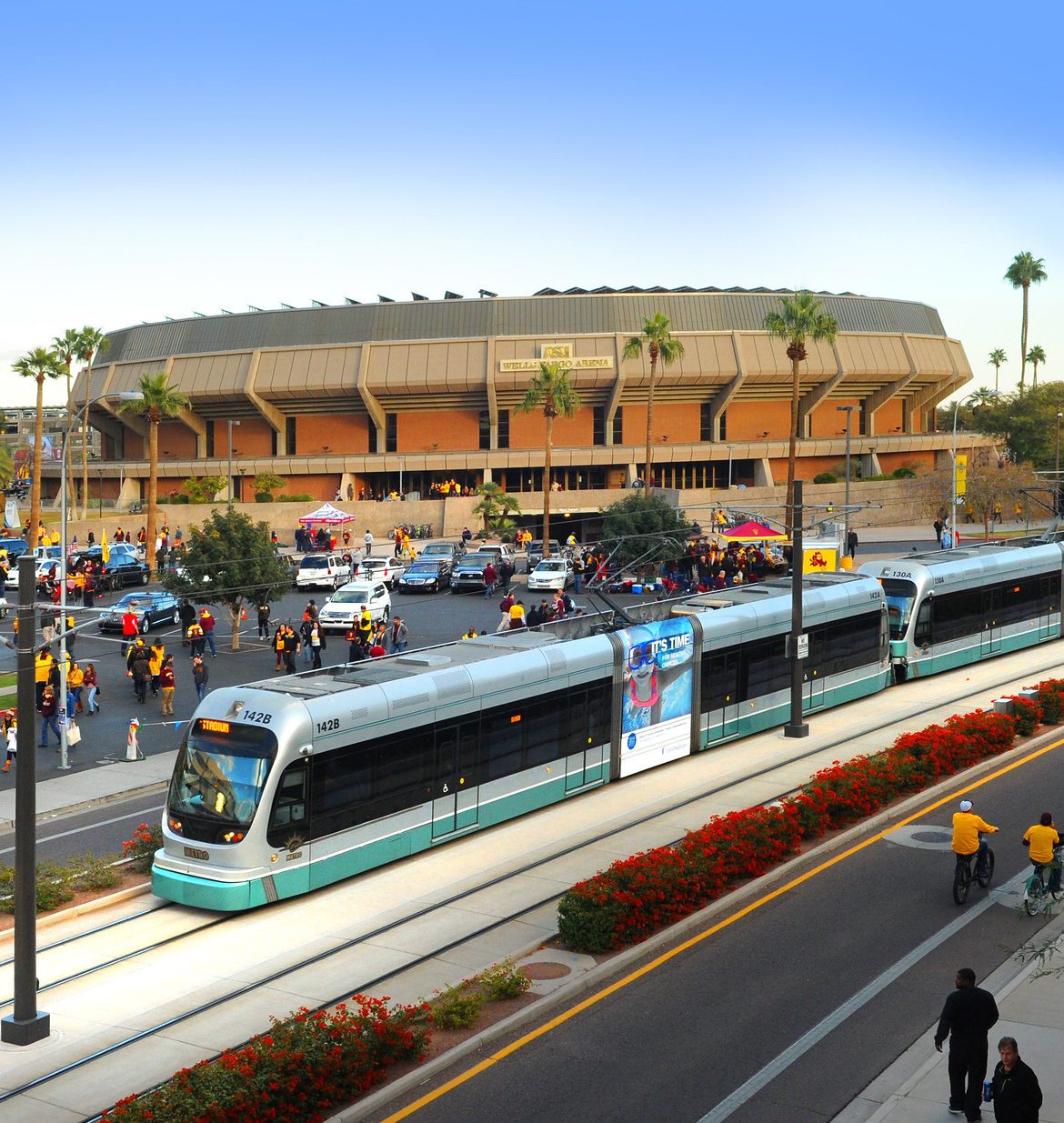
On Tuesday, voters in Phoenix resoundingly voted to reaffirm their support for the city’s transit expansion plans. But while the city can now move beyond this threat to its transit ambitions, the region joins scores of others still waiting on the Trump administration for federal transit funding.
Indianapolis rolls out the red carpet for transit
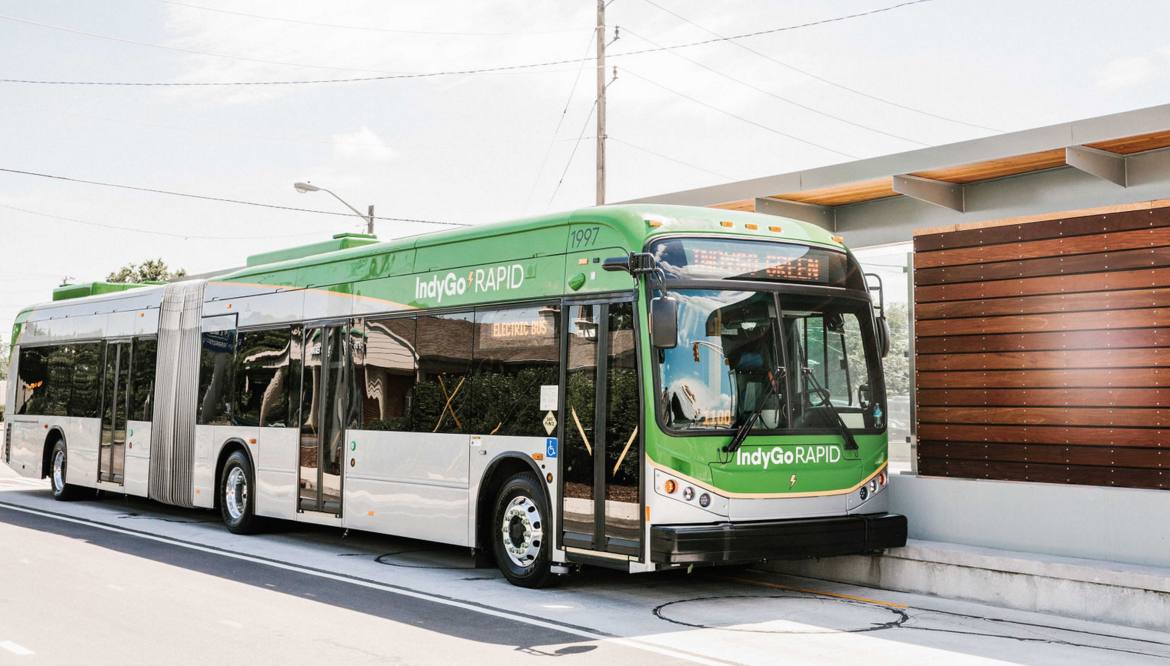
More than a decade ago, local business and civic leaders in Indianapolis realized that for the city to remain competitive it needed to be better at moving people. Today, after an exhaustive planning process, changes to state law, and a successful local referendum where local voters raised their income taxes to invest in transit, the first major piece of Indianapolis’s transit upgrade is set to open.
Federal transit funding delays cause real harm
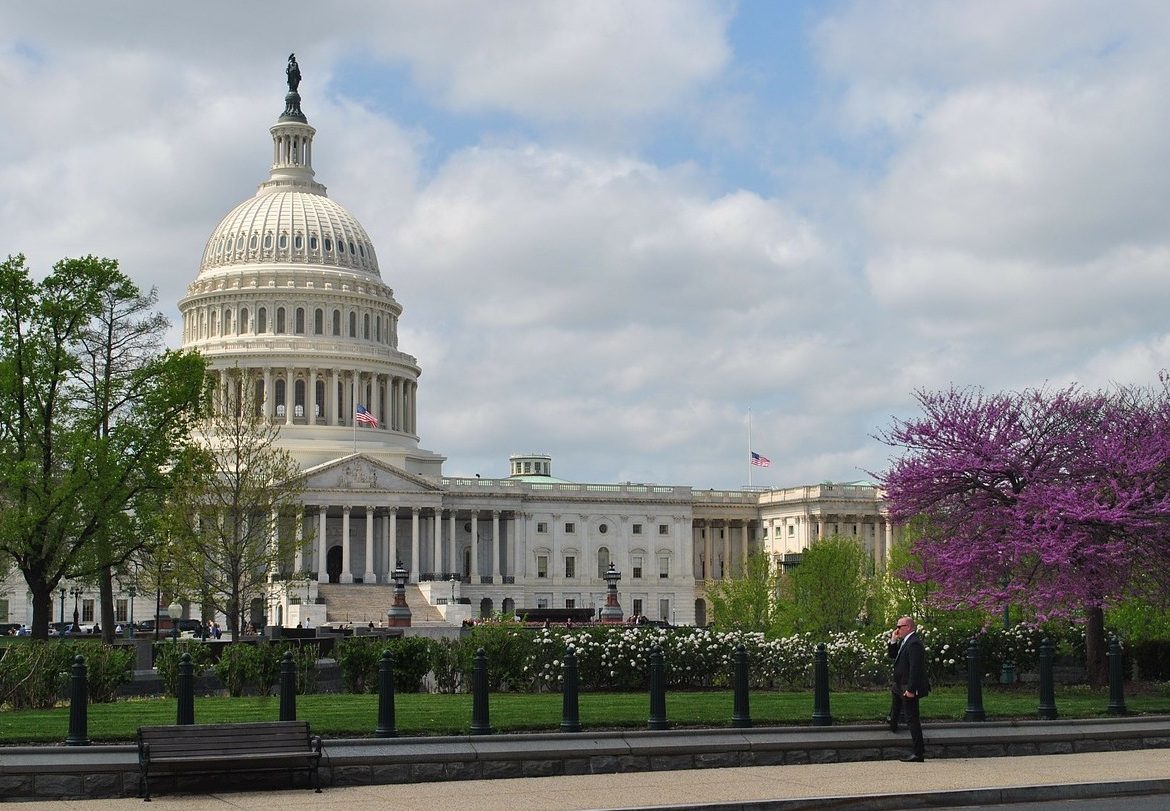
USDOT has been slow-walking federal transit funding since the Trump administration took office and the U.S. House is finally holding an oversight hearing to hold them accountable. Here’s a look at one major way USDOT is making it look like they’re advancing transit grants when they’re really not and some of the impact that’s had on communities on the ground.
Try as Trump might, transit grants are here to stay
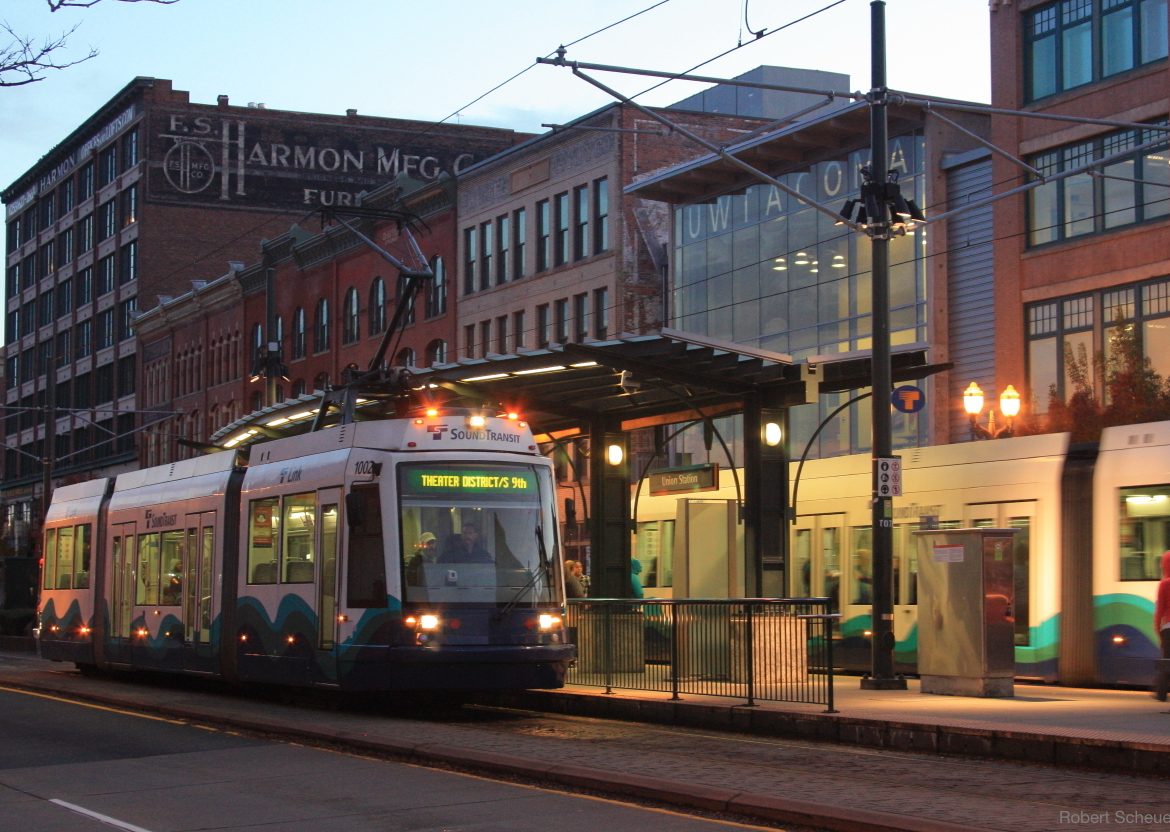
The Trump administration has repeatedly tried to eliminate a critical transit grant program and Congress has repeatedly parried those attempts. The new transportation funding bill from the U.S. House is only the latest evidence that those transit grants are here to stay.
Are we creating assets or liabilities?
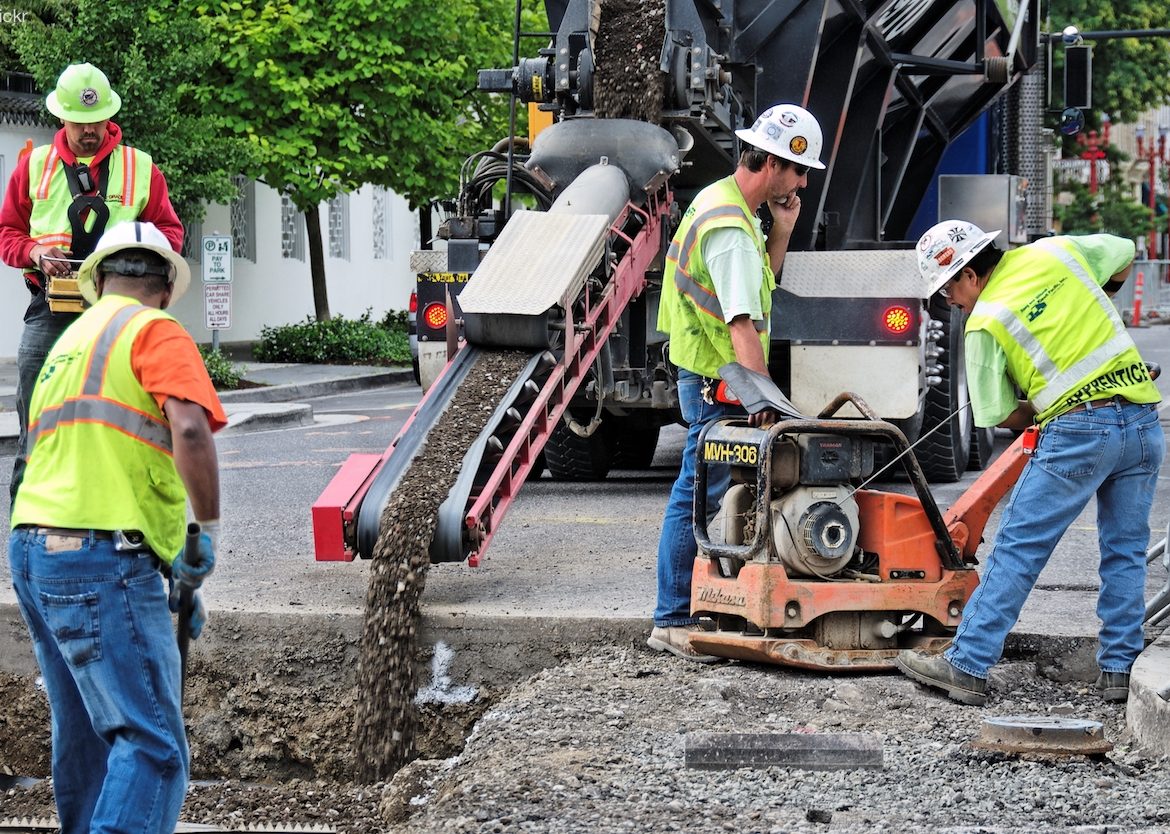
New roads are often considered new assets, but by ignoring repair many states have let those assets become liabilities—as our upcoming Repair Priorities report shows.


















